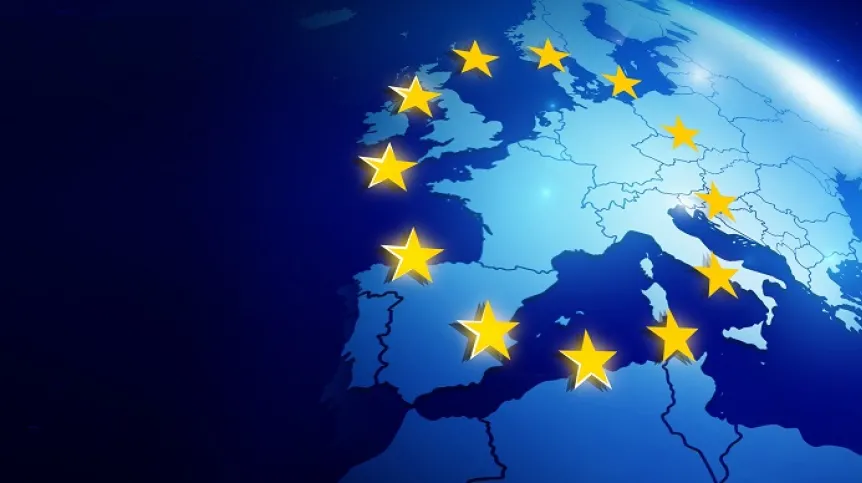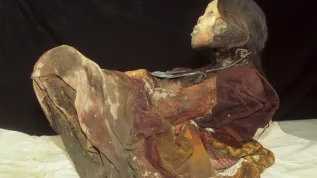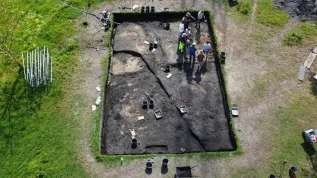
After 20 years of membership in the EU, Poles are more Euro-realists than Euro-enthusiasts; they see the advantages of the EU, their benefits of being in this community, but they also soberly and often critically look at the EU bureaucracy, says Professor Stanisław Mocek, sociologist and media expert, Rector of Collegium Civitas.
This year marks 20 years since Poland joined the European Union. The 2004 enlargement was the largest in the history of the EU - in addition to Poland, the following countries joined: Czechia, Slovakia, Hungary, Lithuania, Latvia, Estonia, Slovenia, Cyprus and Malta.
Professor Mocek says that when considering the issue of Poles' support for the presence in the EU during these 20 years and their sense of agency in the EU, one should take into account the phases that each country goes through: 'from the almost euphoric phase, which generally takes place immediately after joining', through the growing criticism by a certain part of society, to stabilising opinions and treating a given situation as natural.
'The latest, recently published research results from two centres show that approximately 60 percent of Poles declare themselves as pro-EU, a dozen or so percent are definitely against the EU, and the rest present a neutral attitude. So, compared to the European research, these results indicate moderately positive attitude towards the EU,’ he says.
'This result was even better during the rule of the United Right, whose narrative was based on building conflict and opposition to the EU, on the +us versus them+ principle. There was a narrative of undermining the benefits of the EU, a completely different presentation of EU affairs, e.g. the National Recovery Plan Other issues were related to ecological and climate transformation. There was also a strong rhetoric against Germany and France, which creating the impression that the previous governments had a subservient attitude towards the EU. In the extreme case, it evolved into the belief that the rule of the previous +Moscow+ system, turned into the rule of Brussels. These issues are raised by supporters of the Confederation and far-right organizations,’ Mocek says.
In his opinion, if Polish results are compared with support for the EU in other countries, its level in Poland is comparable to other countries. He points out that it is not always clearly correlated with political views. 'For example, despite the government of Euro-sceptic Prime Minister Viktor Orban, Hungarian society is still pro-EU,’ Mocek says.
'As far as Poland is concerned, I would consider this result to be quite decent. There was no decline in support for the EU, the public sees mainly benefits of membership, despite the previous government's narrative that it limits Polish sovereignty. I would still say that Poles today are less Euro-enthusiastic, and more Euro-realists who see the advantages and benefits for themselves, but also look soberly and often critically at the EU bureaucracy and the imposition of various regulations,’ Mocek continues.
'The issue of co-decision is also interesting, perceiving the EU either as +us+ or as +them+. Young and middle-aged people and better educated people perceive the EU more as +us+'; for them, being in the EU is a natural state and they were conscious beneficiaries of the EU funds. Farmers, who are sometimes politically played against the issue of the Green Deal, see the matter slightly differently, and older people, who often raise the issue of Poland retaining its sovereignty, see it differently still,’ he adds.
Mocek points out that, paradoxically, the largest and most long-lasting, generally beneficial changes occurred as a result of the presence of agricultural farms in the EU. 'Polish agriculture has decreased in terms of involvement and numbers in the countryside, but it has changed in an unprecedented way in terms of equipment, and a certain class of agricultural entrepreneurs has also emerged,’ he says.
He believes that the results regarding support for the EU show a 're-emerging bipolar political division'. According to Mocek, 'some supporters of the United Right and the Confederation are increasingly anti-EU and perceive the EU as a threat, a loss of independence, and they are also very critical of the possible limitation of benefits from the EU'. The young and wealthier are the 60 percent of Poles who treat the EU as a development opportunity for Poland.’
He adds that most of the 60 percent of Polish supporters of Poland - in view of the situation beyond Poland's eastern border and in the Middle East - in the EU treat the Union as a possible state shield and a factor that increases our security.
For young people, the EU is more 'us' than 'them', Mocek says. 'These are people who were born in the age of the Internet and social media, Europe is open, you can go wherever you want and make contacts, the EU is a normal thing for them, a natural environment. Therefore, it is difficult to convince them that being in the EU threatens their country's sovereignty,’ he says.
According to the expert, support for the EU may even increase if the government of Prime Minister Donald Tusk shows its agency within the EU, brings funds for Poland's development, or if the security situation in the region deteriorates.
Mocek believes that given all these factors, it is difficult to expect any aspirations for Polexit to succeed. (PAP)
author: Wiktoria Nicałek
wni/ godl/ mow/ kap/
tr. RL













